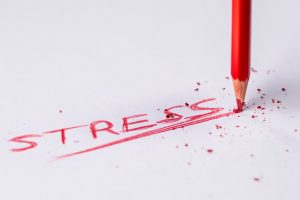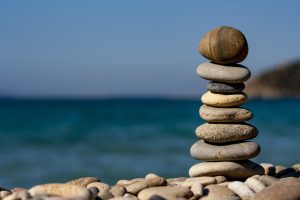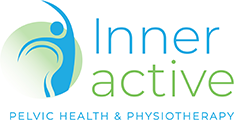The terms stress and relaxation have different meanings in different contexts, however here, we’re going to use these terms specifically as they relate to health.
The Stress Response

Stress is a word we’re used to hearing. We say “I’m stressed” when we start to feel a bit overwhelmed, or when we lose our temper at a time when ordinarily, we wouldn’t.
The term stress in a medical sense, was first used by the German-American scientist Hans Selye in an article in Nature, published in 1936.1 Selye discovered that whilst the body could cope with short term stress, if that stress continued, then the body started to transition into a state of dis-ease, that is, disease. And it didn’t matter what kind of stress was involved, whether physical or emotional, whether positive or negative, the effects on the body were similar. The main hormone Selye identified underlying these changes, was cortisol. He discovered that it is when cortisol levels remain high in the body over extended periods of time, that organ systems can begin to sustain damage, in particular, to the adrenal glands (which regulate metabolism, the immune system & blood pressure)and the thymus gland & lymph nodes (also involved in the immune system). He also found signs of inflammation in the stomach & bowel, with the appearance in later stages, of ulceration.
It was Walter Cannon, the great physiologist at Harvard Medical School who in the 1920s, coined the phrase ‘fight or flight’ . He examined the bodily responses underlying these responses that are orchestrated by a part of the nervous system called the sympathetic nervous system (SNS). As part of of fight/flight, amongst other functions, the SNS directs blood flow away from the gastrointestinal tract and skin, and towards the muscles, raises blood pressure, increases heart rate and so on. Selye was able to show exactly what was going on in the body tissues, when the fight/flight impulse became prolonged.
It is important to understand that exactly which specific actions, events or feelings a person will experience as stress, is a highly individual thing that varies from one person to another, not only according to inherited traits, and childhood experiences, but also within the same person from one time to another, depending on the level of accumulated stress that person is already carrying when a new stress has to be contended with.
The Relaxation Response

Herbert Benson, an American cardiologist and researcher, also at Harvard Medical School but working much later than Cannon, was studying the relationship of behaviour and blood pressure in monkeys when in 1968, a group from the Transcendental Meditation movement visited the school, requesting to be studied, and it was this that changed the focus of his research.
As Canon had noted earlier, relaxation, in contrast to fight & flight, engaged another branch of the nervous system, called the parasympathetic nervous system, and Benson set out to look at this in more detail. What he found in this state of wakeful rest2 was the appearance of alpha brainwaves (in contrast to the beta waves of outwardly focused concentration), a decrease in the heart rate & the rate of breathing, and an increase in digestive activity. Benson famously referred to these shifts in the body as the Relaxation Response and he used this as the title for his book, published in 1975, which is still in print and has sold millions of copies worldwide.
Benson estimated that around 60% of all doctor’s visits were for stress-related conditions. Amongst these, he included hypertension (high blood pressure), headaches, insomnia, irritable bowel syndrome and chronic low back pain, as well as heart disease, stroke and cancer.
More recently, genomics research at the Benson-Henry Institute for Mind-Body Medicine has demonstrated3 that when subjects with irritable bowel and inflammatory bowel disorders practiced relaxation daily for 15 minutes and attended a weekly group, the action of certain genes, those involved in inflammatory pathways, changed towards a reduction in inflammation and of action in oxidative pathways.
“One of the most powerful tools a psychologist can use is actually nothing new”, Benson said at the APA’s (Amer Psychological Society) 2008 Annual Convention. “In fact, it’s an approach that’s been around for millennia…” Benson was referring to disciplines like yoga, the various forms of meditation, and religious and spiritual rituals like prayer, all of which set in motion these same physiological changes.
Written by Jenny Myers
Jenny has gained extensive experience and expertise in a large variety of settings, from working with babies and mothers, up to the very old and everyone in between. She holds a strong passion for music and dance and has over the years combined this with therapeutic exercise. In addition, her interests have continued to grow in exploring the association between mental health and chronic health problems. You can book an appointment with Jenny HERE
REFERENCES
- A Syndrome Produced by Diverse Nocuous Agents H. Benson, Nature, July 4 1936
https://neuro.psychiatryonline.org/doi/full/10.1176/jnp.10.2.230a
- A wakeful hypometabolic physiologic state R. Wallace, H Benson, H Wilson Am J Physiol 1971
Sep;221(3):795-9.
https://journals.physiology.org/doi/abs/10.1152/ajplegacy.1971.221.3.795
- Genomic and Clinical Effects Associated with a Relaxation Response Mind-Body Intervention in
Patients with Irritable Bowel Syndrome and Inflammatory Bowel Disease Kuo et al PLoS One. 2015; 10(4)
BIBLIOGRAPHY & RESOURCES
The Relaxation Response Harper Collins (1975) Herbert Benson, M.D., Miriam Z. Klipper
A brief set of instructions in how to elicit the Relaxation Response written by Herbert Benson himself:
Some further relaxations aids at the Benson-Henry Institute site
https://bensonhenryinstitute.org/guided-relaxation-exercises/





